Table of Contents
Daily Current Affairs for Government Exams:
Today Current Affairs:28th March 2020 for UPSC IAS exams, State PSC exams, SSC CGL, State SSC, RRB, Railways, Banking Exam & IBPS, etc.
Contents:
- Prime Minister’s National Relief Fund (PMNRF):
- World Health Organisation’s (WHO) Solidarity Trial:
- Operation Namaste: Indian Army
- Cantonment Board
- Defence Production Act, 1950 invoked in the US
- Other important current affairs:
1.Prime Minister’s National Relief Fund (PMNRF):
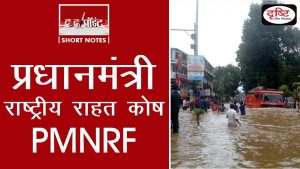
The Vice President of India and the Chairman Rajya Sabha, Shri M Venkaiah Naidu has contributed a sum equivalent to a month’s salary to the Prime Minister’s National Relief Fund (PMNRF) to strengthen the government’s efforts in combating COVID-19 outbreak in the country.
- In pursuance of an appeal by the then Prime Minister, Pt. Jawaharlal Nehru in January 1948, the Prime Minister’s National Relief Fund (PMNRF) was established with public contributions to assist displaced persons from Pakistan.
- The resources of the PMNRF are now utilized primarily to render immediate relief to families of those killed in natural calamities like floods, cyclones, and earthquakes, etc. and to the victims of the major accidents and riots.
- Assistance from PMNRF is also rendered, to partially defray the expenses for medical treatment like heart surgeries, kidney transplantation, cancer treatment, etc.
- Disbursements are made with the approval of the Prime Minister.
- PMNRF has not been constituted by the Parliament.
- The fund is recognized as a Trust under the Income Tax Act and the same is managed by Prime Minister or multiple delegates for national causes.
- PMNRF is exempt under the Income Tax Act.
- Prime Minister is the Chairman of PMNRF and is assisted by Officers/ Staff on an honorary basis.
- These contributions also qualify as CSR (corporate social responsibility) spend on companies, making it more attractive in terms of tax exemptions.
2. World Health Organisation’s (WHO) Solidarity Trial:
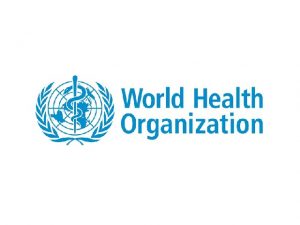
India is all set to join the World Health Organisation’s (WHO) Solidarity Trial which aims at the rapid global search for drugs to treat COVID-19.
- India has stayed away from the multi-country trial until now due to its small sample size.
- It will express its interest to participate in the trial for the Indian population when it feels that the time is right.
- Vaccine development wasn’t a priority for the Indian Council of Medical Research (ICMR) currently because there are around 30 vaccine groups already in operation worldwide.
- Keeping in view the rising number of cases and challenges faced by India, the government has decided to participate in the solidarity trial.
Solidarity Trial
- It will test different drugs or combinations like:
- Remdesivir.
- Combination of lopinavir and ritonavir (anti-HIV drugs).
- Interferon-beta with the combination of lopinavir and ritonavir.
- Chloroquine.
- It will compare their effectiveness to the standard of care, the regular support used by the hospitals treating COVID-19 patients.
3. Cantonment Board:
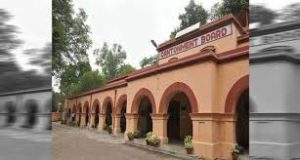
A Cantonment Board is a body corporate under the Cantonments Act, 2006 having perpetual succession.
- As per Section 10(2) of the Act, every Cantonment Board is deemed to be a municipality under clause (e) of article 243P of the Constitution for the purpose of:
- Receiving grants and allocations; or
- Implementing the Central Government schemes of the social sector, public health, hygiene, safety, water supply, sanitation, urban renewal and education.
- The overall municipal administration of the Cantt areas comes under Cantonment Boards which are democratic bodies.
- Cantonments are different from the Military Stations in that the Military Stations are purely meant for the use and accommodation of the armed forces and these are established under an executive order whereas the Cantonments are areas that comprise of both military and civil population.
4.Operation Namaste: Indian Army:
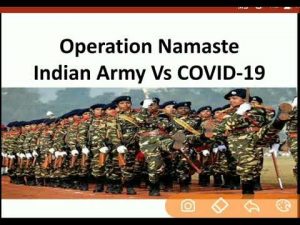
The Indian Army has code-named its anti-COVID-19 campaign as Operation Namaste to help the government in its fight against the pandemic.
- Soldiers are advised to follow the lockdown, wherever they do not have any operational role, and stay fit.
- They are assured that their families will be well taken care of.
- Segregation facilities have been set up to observe troops already back from leave from various states.
- So far six quarantine facilities at Manesar, Jaisalmer, Jodhpur, Chennai, Hindan and Mumbai have been established where 1,463 people evacuated from coronavirus-affected countries have been accommodated.
- The forces are setting up more such facilities at Kolkata, Visakhapatnam, Kochi, Dundigal, Bengaluru, Kanpur, Jaisalmer, Jorhat and Gorakhpur which can be ready within 72 hours, if needed.
- 28 Armed Forces hospitals have been earmarked as COVID hospitals.
- These hospitals will include armed forces patients as well as civilian patients transferred from state health authorities.
- Five hospitals from the Army, Navy and the Air Force are conducting coronavirus tests using the RT-PCR methodology and more hospitals will be equipped soon with the resources.
- 62 Cantonment Boards have been instructed to identify beds in hospitals and health centers and guesthouses for any eventuality.
5.Indian Scientists’ Response to CoViD-19 (ISRC):
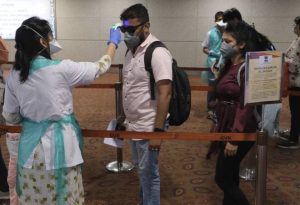
It is a voluntary group of scientists who regularly discuss the rapidly evolving situation with its dire need for science communication.
- With nearly 200 members, the group has scientists from institutions such as the NCBS, the IISc, the TIFR, the IITs, the IISERs, and many others.
- The group aims to study existing and available data to bring out analyses that will support the Central, State and local governments in carrying out their tasks.
- This platform works through two channels phone and WhatsApp to connect people in need with those who can provide help.
6. Defence Production Act, 1950 invoked in the US:
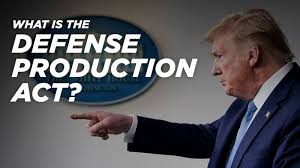
US President Donald Trump invoked the Defence Production Act recently.
- The act has been invoked in order to direct General Motors, a Multinational Corporation to manufacture ventilators needed to fight COVID-19.
- The act was enacted in 1950 in response to the Korean War. Under the act, President Truman established defence mobilization and also imposed price controls and regulated heavy industries.
- In 2011, President Obama invoked the law to force the telecommunications industries to provide information related to the use of foreign-manufactured hardware and software in the networks of the companies.
- The act authorizes the president of the United States to make or even force a business to accept and prioritize contracts that are essential for the defence of the country.
- It authorizes the President to frame regulations, order to allocate services, materials and facilities that will promote the defence of the country.
- It also authorizes the President to force industries to expand production, impose price controls and control consumers to allocate raw materials to fulfil the needs of the country.
Other important current affairs:
1. Japan’s Prime Minister and the head of the International Olympic Committee Shinzo Abe agreed to postpone the Tokyo 2020 Games by a year in an extraordinary move, unprecedented in peacetime, as the world battles the coronavirus pandemic.
2. Recently, India has decided to set up an electronic platform to help member countries of the South Asian Association for Regional Cooperation (SAARC) fight the COVID-19 pandemic. The decision has been conveyed during a virtual conference of health professionals of eight countries in the region.
3. Ministry of HRD Innovation Cell, AICTE, MEITY Startup Hub, InnovatioCuris and other institutions of global and national prominence organize Fight Corona IDEAthon. This ideathon is a 2-day online initiative to mitigate the uncertainties arising in light of the rampaging Pandemic. It is an endeavor to scout for accessible and affordable technological solutions that can contain the rapid spread of infection, ease the mounting pressure and ensure a quick return to normalcy.
4. The Ministry of Home Affairs (MHA) issued the Standard Operating Procedure (SOP) for maintaining the supply of essential goods through retail and e-commerce platforms. The SOP covers suppliers of essential goods, including restaurants supplying cooked food items.
5. Indian Railways has decided that the period from 22.03.2020 to 14.04.2020 shall be treated under “Force Majeure”. During this period no demurrage, wharfage, stacking, stabling, detention, and ground usage charge shall be leviable. A force majeure (FM) means extraordinary events or circumstance beyond human control such as an event described as an Act of God (as a natural calamity).
6.The Department of Empowerment of Persons with Disabilities (DEPwD) under the Ministry of Social Justice and Empowerment has issued “Comprehensive Disability Inclusive Guidelines” to States and Union territories.
This is for the protection and safety of Persons with Disabilities (Divyangjan) in light of Pandemic COVID19.
8. Petroleum and Explosives Safety Organization (PESO) has taken various measures to ensure uninterrupted supply of Oxygen to hospitals and other health care facilities due to nationwide lockdown for containment of COVID-19 pandemic.
9. Prime Minister Narendra Modi condoled the death of Satish Gujral. Satish Gujral (1925 – 2020) was a renowned Indian painter, sculptor, muralist, and writer of the post-independent era. He was awarded the Padma Vibhushan, the second-highest civilian award of India, in 1999.
10. In view of the hardships faced by the parents and the students due to the COVID-19 epidemic, the National Testing Agency has postponed the ensuing NEET (UG) May 2020 examination scheduled to the last week of May 2020. The National Eligibility-cum-Entrance Test (NEET) is the examination for admission to undergraduate medical degree programmes.
11. Prime Minister Narendra Modi expressed grief over the demise of Brahma Kumari’s Chief Dadi JankiRajyogini Dadi Janki, the Chief of Brahmakumaris Sansthan, the world’s largest spiritual organization run by women, passed away at the age of 104 after a prolonged illness.
12.Arr-Rinam: It is a tribal lockdown ritual observed in Arunachal Pradesh. It is the Galo equivalent of lockdown imposed by consensus for 48 hours whenever an epidemic strikes. It has been imposed now on account of COVID- 19 spread.
13. Prime Minister Modi announced PM-CARES Fund. The fund is being raised to deal with the distress or emergency as that of COVID-19 pandemic. PM-CARES is Prime Minister’s Citizen Assistance and Relief in Emergency Situations fund.
14. The Ministry of HRD (Human Resources Department) announced that the access to the National Online Education Platform called the SWAYAM has tripled since LockDown. SWAYAM is Study Webs of Active Learning for Young Aspiring Minds. It was launched in 2014.
15. The Union Agriculture Minister announced that agriculture and farming-related activities have been exempted from LockDown. This was introduced in the second addendum introduced by the Ministry of Home Affairs.
16. The Ministry of Home Affairs introduced new rules under the State Disaster Response Fund. Under the rules, the funds are to be used to facilitate the availability of temporary accommodation and food for the migrant workers.
17. The Border Road Organization (BRO) is working in full swing to completely replace the Daporijo bridge. The bridge os the only line of communication to 451 villages located in the China border. Also, the BRO is engaged in snow clearance of Manali-Leh axis to provide relief to Ladakh and Lahaul valley. The Project Arunank is being implemented by BRO in the state of Arunachal Pradesh. The project aims at linking remote regions of the borders with well developed strategic roads.
18. The JICA (Japanese International Cooperation Agency), a funding agency of the Japanese Government signed an agreement with GoI for 3 mega rail infrastructure projects. The project cost has been estimated as Rs 15,295 crores
19. According to research published in the journal “Pathogen”, the virus jumped to humans from Pangolins. Also, the mutation was the main reason for the virus to target human cells so easily and hence leads to a fast spread of the virus.
20. A United Launch Alliance Atlas 5 rocket lifted off carrying a USD 1.4 billion Advanced Extremely High Frequency (AEHF-6) communications satellite for the U.S. Space Force in Florida. This was the sixth and final satellite of the AEHF constellation that provides secure, jam-proof voice and data communications for U.S. national leadership, military forces.
21. Indian filmmaker Zoya Akhtar won the IIFTC Tourism Impact Award 2020 for her outstanding contribution to world tourism through her cinema at the 8th India International Film Tourism Conclave (IIFTC)
22. American medical devices and health care company, Abbott Laboratories is unveiling a coronavirus test that can tell if someone is infected in as little as 5 minutes. The medical-device maker plans to supply 50,000 tests a day starting April 1.




